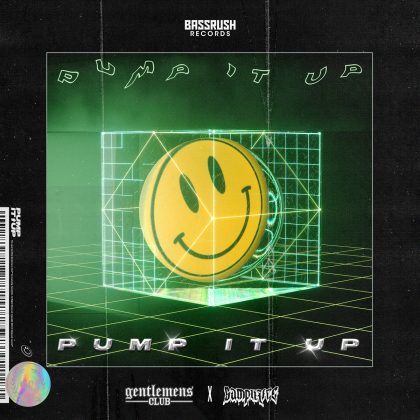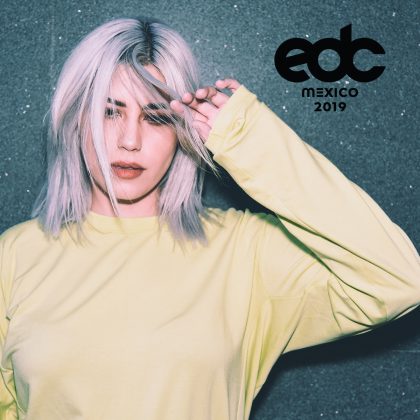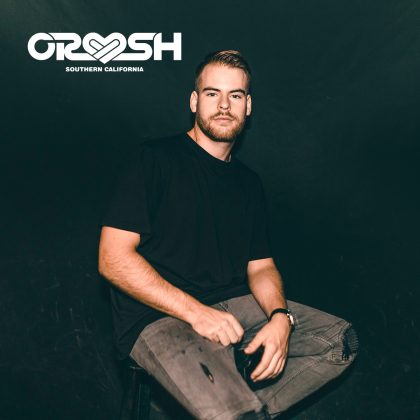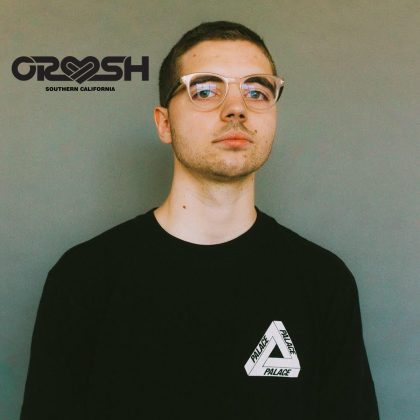The Problem With Dubstep
Dubstep is as controversial as it is sonically intense. Lots of people make it—some poorly, some with exceptional skill and style. Many people love it, but a lot of people really fucking hate it. Purists will tell you the version of dubstep popularized circa 2011 by dudes including Skrillex and Excision has little to do with what genre pioneers including Skream, Caspa and Rusko were doing in the dark clubs of London in the early aughts.
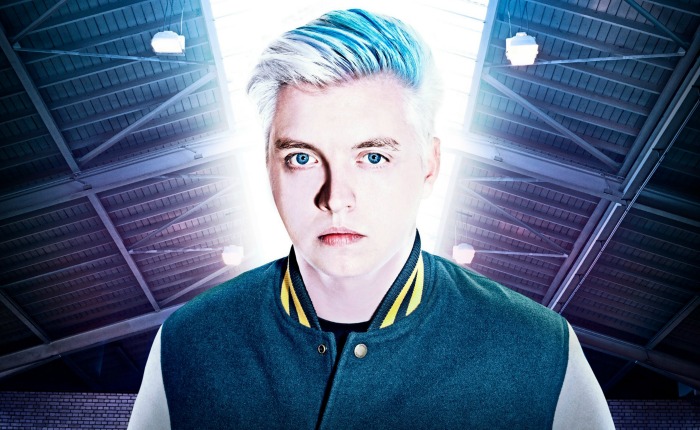
In fact, even artists known for making dubstep no longer seem to want to be associated with the genre. Datsik has made efforts to move away from the label, and Skream told Vice that what dubstep evolved into as it reached mass saturation on the festival circuit “wasn’t exciting anymore. It just got to the point where it was all about drops.” 12th Planet is now focusing on a subgenre called swamp and Flux Pavilion, who made the famously aggressive 2011 track “Bass Cannon,” recently tweeted:
I’m over being known as a dubstep artist. Someone interview and ask me about electronic music and I’ll have a lot to say.
— Flux Pavilion (@Fluxpavilion) August 23, 2014
So, we did interview him, and he did in, fact, have a lot to say.
What was the deal with that tweet?
Since the dawn of Flux Pavilion, I’ve always tried to say that I’m not a dubstep producer. Anyone who knows what dubstep actually is knows it’s a really deep kind of rolling, underground movement; what we did with our stuff was never really a part of that.
I was inspired by Caspa and Rusko, and they just sort of took it to the next level. I’ve always been into really heavy dancefloor stuff and massive drum & bass like Prodigy, and what we tried to do was inspired by the sounds and the tempo of dubstep, and then just making really ridiculous, outrageous electronic music. That was always the plan. Then it kind of got called dubstep. There’s so much more integrity and emotional construct with guys like Kill the Noise and Feed Me and deadmau5 and me that I don’t think is being represented with the word “EDM” and obviously the word “dubstep” as well.
How has the reality of what dubstep is been misconstrued?
It was 140 bpm, and then that was a really cool bpm to write crazy dance floor music too, but it was never really dubstep at that point. When it started getting a bit convoluted was with people putting out drumstep tunes, like halftime drum and bass, and calling it dubstep, and people putting out moombahton and electro tunes and calling it dubstep. Now people call stuff EDM, whereas I just want to promote the idea that it’s just fucking music, really.
Do you think EDM is a dirty term?
EDM is a nicer term than using any kind of genre construct, but it comes with the preconceived idea that with EDM, you’re a DJ and you’re going to play all the classic DJ shows. The thing is, when I do play shows at all of these places, the way I try to approach it is bringing something else, something different.
How so?
I’d go to all of these clubs, and it felt like everyone was playing all of this underground, headsy, what’s-cool-on-the-blogs music, and I just made “Bass Cannon” literally as a joke. I had bright blue hair and was a pretty overweight white guy stepping up to the decks, and people were like, “Who is this guy?” The song has this weird sort of Latino-inspired intro and drops into this outrageous, most unashamed bassline ever. That was kind of the idea: It doesn’t matter if it’s cool. It doesn’t matter what it is. All that matters is that it makes you feel something. That, to me, is what the music is all about.
Do you think genre labels are necessary?
Labels are definitely useful. If you like a drum & bass tune and then you think, “I like this, let me see what else is on offer within this genre,” it’s a really good way to be able to explore a similar sound. What I don’t like about it is the preconceived idea that once you’re attached to a genre label, that is what you are.
So then how to you get past that limitation? By labeling your music differently, or refusing to label it?
I don’t know if there is a tactic. I feel like the best way to approach it is to be clear that your music is to be listened to, not to be used in a certain way. The music I write isn’t meant to tick any boxes or fit into a certain world. It’s just a tune that I really enjoyed writing, and that I’m putting out in the same way the Foo Fighters or the Red Hot Chili Peppers or an act who has a sound a lot of people are emulating would.
Like Skrillex, what he does is awesome and there are loads of copycats and people using that sound, but that shouldn’t detract from the worth of what he does. The way dubstep is generalized and the way it’s viewed detracts from anyone who’s writing it, and it takes away the idea that the music being written is good, because it’s already being attached to something that’s generally perceived as not good.
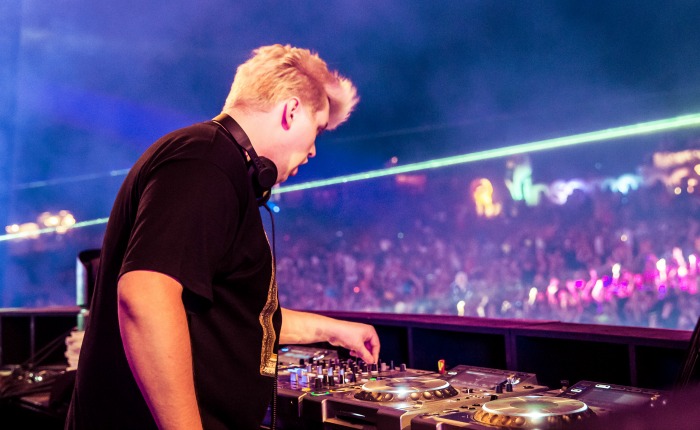
But why is there a perception of dubstep not being good?
Loads of people are making shit. That’s a fact. I’m not here to say, “dubstep is rubbish, I don’t want to be part of it,” but I’m also not here to say that dubstep is amazing and it’s all I am. There is loads of crap dubstep, but I think it’s the same with big room house and electro and drum & bass. There’s loads of crap music everywhere, but there’s also loads of great music everywhere.
Look at drum & bass, someone could hear a big drum & bass track and think, “I don’t like drum and bass, I’m not into this,” without realizing that you’ve got Noisia and you’ve got Goldie under the same banner. Completely different experiences, but they’re just under that word. That’s cool and handy, but as that keeps going on and within the press there becomes a more generalized view of what these words represent, there’s a lot of fantastic music that’s dipping under the radar because it’s being attached to certain labels.
Is your method for breaking away from that association just continuing to evolve as an artist?
That’s the thing. I still like writing the music that is dubstep. It’s a definite problem… You don’t want to be associated with a certain thing, but that doesn’t actually stop it being fun and awesome and good music. To turn my back on that because I don’t want people to think a certain way of me is just as bad as writing something to make people think I’m cool.
You’re saying you don’t want to be associated with dubstep, but you still want to keep making it. What’s the real issue here?
The real problem is the way that electronic music is perceived as not real music. Somehow the idea of playing the guitar is more real and more musician-like than writing on your computer. But in my experience of producing and still now, I play live instruments within my tracks and then just puts loads of distortion on them and stuff because it sounds cool. As a person that plays instruments and electronic music, I actually feel way more creatively inspired messing around with a synth and writing chords using a midi roll than I do picking up an instrument, because it’s freer.
Would you agree with the statement that DJs are the new rock stars?
There are DJs who are rockstars, but being a rockstar is not what electronic music is all about. That dips into the celebrity world. Being a face and being a brand, which in its own way is an art. I do have loads of respect for guys like Steve Aoki who’s got his brand and this thing going on, which has surpassed the music itself. That’s awesome, but that’s always what kind of makes the most noise in the general world.
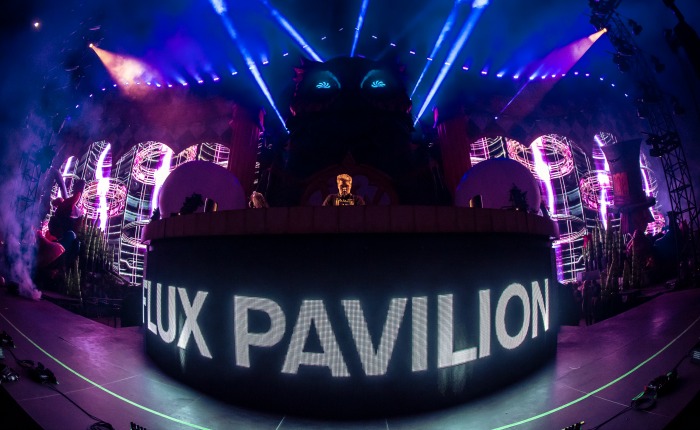
Do you take issue with the dubstep audience? There’s this sort of negative connotation with brostep. Is part of the issue related to the people who come and listen to the music?
Three years ago, the word brostep started coming into my radar. I never really saw it myself. You could put together a compilation video of a bunch of Ultra performances, but in reality, that’s such a small minority of the experience. When I’m playing shows, it tends to be kind of regular kids. I remember once I was looking out into the crowd, and I saw a guy dressed in a full tracksuit, and a few skater guys and a full-on goth chick, and then a bunch of hippie kind of PLUR people. It was such an interesting range of human beings in one place experiencing music. There is the odd show where you turn up and it’s a proper cock carnival, but that has to do more with the ways the parties are promoted.
Is it fair to say that this is all really an issue of perception?
It’s really interesting every time I come across someone who says, “Your existence is dubstep,” and it’s like, where have you gotten this idea from? Because my music isn’t speaking that, and I’m not speaking that, and my shows aren’t speaking that. That’s what my tweet was about.
The way that I’m really thinking about attacking this is making the best music I possibly can and making an album that smashes it. Whenever I talk to my manager, he’s like, “You know what you really need to do is make amazing music, and none of this shit will matter.” That’s the bottom line. That’s my answer: to make the best music that I possibly can and forget about the rest.
Flux Pavilion Plays Safe in Sound at the Palladium in Los Angeles Saturday, October 18. Get tickets.
Follow Flux Pavilion on Facebook | Twitter

